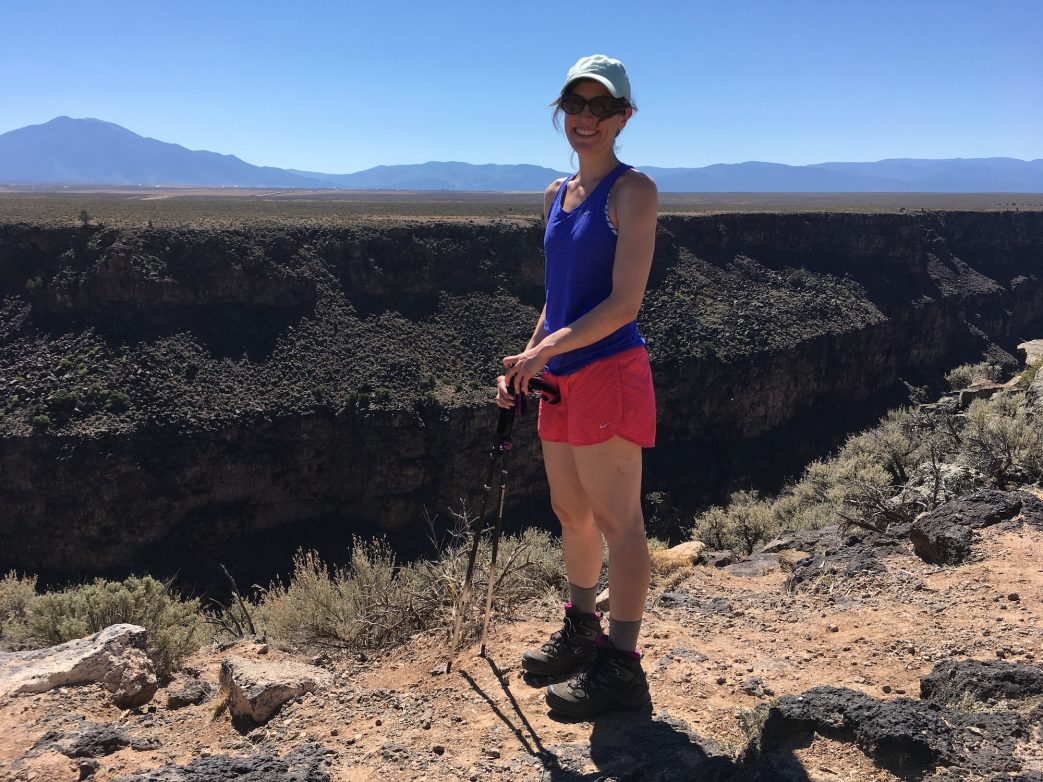This week we’re highlighting affiliated researcher Morgan Levy. Morgan recently joined Scripps Institution of Oceanography as an assistant professor with a joint appointment at the School of Global Policy and Strategy. Morgan received a Ph.D. and M.S. in Energy and Resources, and a M.A. in Statistics from the University of California Berkeley.
1. What part of coming to Scripps are you most excited about?
I’m most excited about the climate science and environmental policy focus within my departments, and how water resources research is a growth area for Scripps at that interface. The joint appointment is a great mix for someone like me with interdisciplinary research interests. Scripps has a focus on the physical sciences, while the School of Global Policy and Strategy has a focus on data analytics and GIS. This gives me the opportunity to do collaborative research, teach, and recruit students and postdocs across both areas.
I’m also looking forward to the collaborations that are made possible by the diverse intellectual community within Scripps. Being here presents a truly unique opportunity to do research at the intersection of climate change and freshwater resources, and learn more about climatic impacts on both humans and the terrestrial water cycle.
2. How did your previous experiences lead you to this position?
I originally came to The University of California, San Diego (UCSD) in 2018 as a postdoc on a National Science Foundation (NSF) funded project with the School of Global Policy and Strategy Professor Jen Burney. My postdoc had a water resources focus, and I started to become familiar with the hydrology and hydrology-adjacent work being done at Scripps.
Professor Burney and I ended up collaborating with Scripps Professor Adrian Borsa and PhD student Wes Neely on a project that used a remote sensing technology known as InSAR (interferometric synthetic aperture radar) in conjunction with climate and land cover data, to improve groundwater monitoring in California’s San Joaquin Valley.
At the end of 2019, I went on the academic job market and ultimately ended up taking my current position. I’m excited to take advantage of the very unique opportunity to continue working on existing projects with Scripps colleagues, and to carve out new projects with other colleagues that I haven’t had the opportunity to work with yet!
3. What climate change-related research projects are you working on currently?
One of my main focus areas is climate change adaptation as it pertains to water resources. Amidst the increasingly variable and extreme weather that comes with climate change, California needs to meet long-term water sustainability targets.
Building upon projects from my postdoc, I’m working with researchers from both Scripps and the School of Global Policy and Strategy to help inform those sustainability efforts. One way that we’re doing this is by combining remotely sensed physical data with social and institutional management information relevant to water use.
4. How does this work help us better understand or adapt to climate change?
Climate and hydrology govern many threats to people, economies, and ecosystems. Solutions to challenges like freshwater availability, food insecurity, and the transmission of many diseases rely on understanding climate change effects on water systems and how society interacts with those changing water systems.
For this reason, I work to understand feedbacks between humans and different components of the water cycle. Ultimately, my goal is to inform the design of management and policy that supports sustainable freshwater systems in a climate-changed world and to consider the dynamic role of people and institutions in water cycle processes.
5. What are some surprising things that people might not know about you?
I was not on a science track until very late in my education! During my undergraduate years, I was interested in international development, human geography, and the arts. I became interested in the sciences, and specifically in hydrology and answering applied scientific questions with data, through a job I had after college. I worked for a team of scientists and lawyers at an environmental nonprofit, where I had the opportunity to watch the legal team I worked for litigate cases related to the management of California rivers.
That experience opened my eyes to the importance of environmental science and data in policymaking, and the immense uncertainty that anthropogenic change was injecting into the understanding of how to manage freshwater. That’s what motivated me to transition to hydrology and data science for graduate school, and to end up where I am today!
Thanks for sharing, Morgan! Learn more about Morgan’s work here and follow her on Twitter here.


